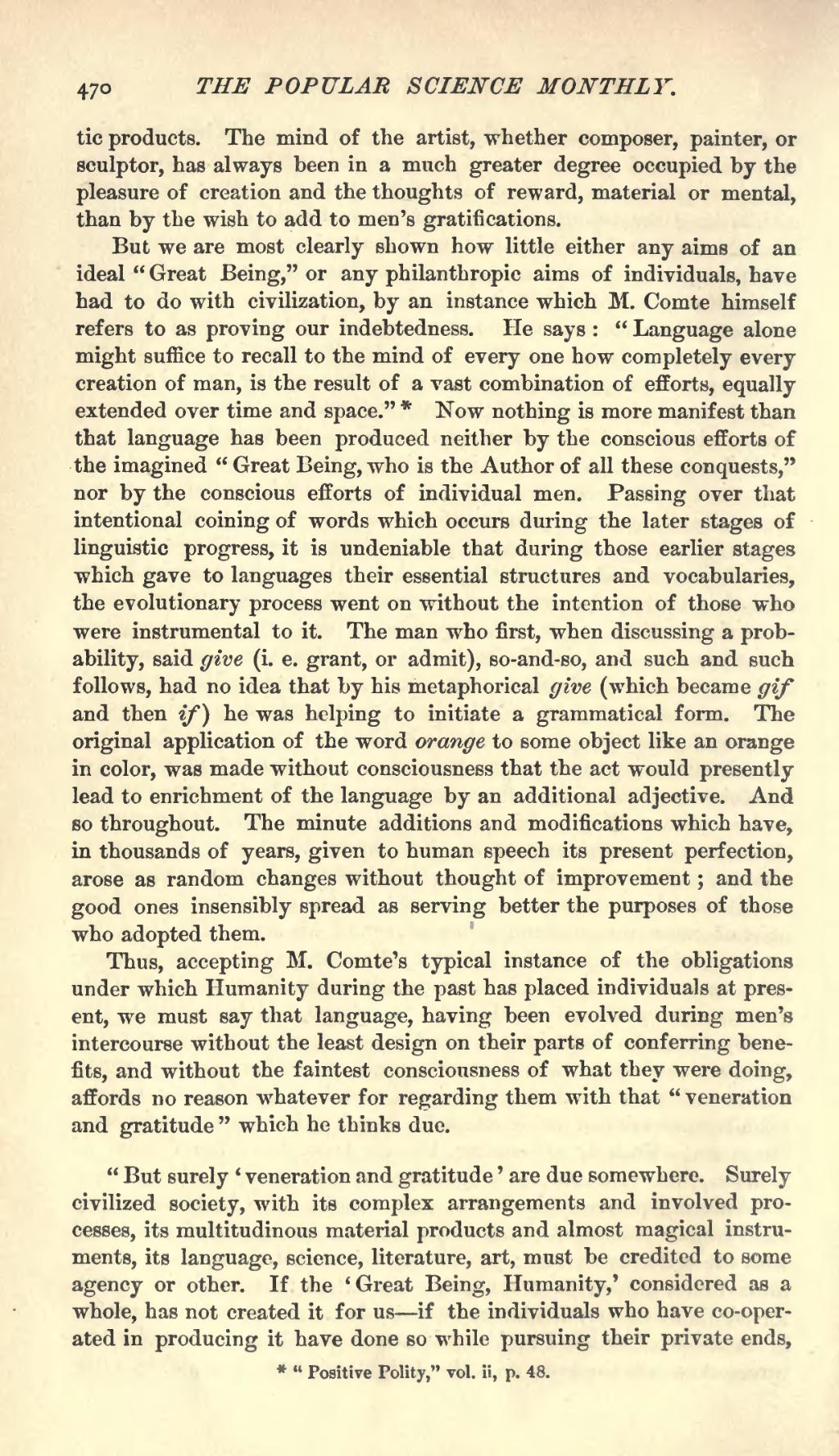tic products. The mind of the artist, whether composer, painter, or sculptor, has always been in a much greater degree occupied by the pleasure of creation and the thoughts of reward, material or mental, than by the wish to add to men's gratifications.
But we are most clearly shown how little either any aims of an ideal "Great Being," or any philanthropic aims of individuals, have had to do with civilization, by an instance which M. Comte himself refers to as proving our indebtedness. He says: "Language alone might suffice to recall to the mind of every one how completely every creation of man, is the result of a vast combination of efforts, equally extended over time and space."[1] Now nothing is more manifest than that language has been produced neither by the conscious efforts of the imagined "Great Being, who is the Author of all these conquests," nor by the conscious efforts of individual men. Passing over that intentional coining of words which occurs during the later stages of linguistic progress, it is undeniable that during those earlier stages which gave to languages their essential structures and vocabularies, the evolutionary process went on without the intention of those who were instrumental to it. The man who first, when discussing a probability, said give (i.e. grant, or admit), so-and-so, and such and such follows, had no idea that by his metaphorical give (which became gif and then if) he was helping to initiate a grammatical form. The original application of the word orange to some object like an orange in color, was made without consciousness that the act would presently lead to enrichment of the language by an additional adjective. And so throughout. The minute additions and modifications which have, in thousands of years, given to human speech its present perfection, arose as random changes without thought of improvement; and the good ones insensibly spread as serving better the purposes of those who adopted them.
Thus, accepting M. Comte's typical instance of the obligations under which Humanity during the past has placed individuals at present, we must say that language, having been evolved during men's intercourse without the least design on their parts of conferring benefits, and without the faintest consciousness of what they were doing, affords no reason whatever for regarding them with that "veneration and gratitude" which he thinks due.
"But surely 'veneration and gratitude' are due somewhere. Surely civilized society, with its complex arrangements and involved processes, its multitudinous material products and almost magical instruments, its language, science, literature, art, must be credited to some agency or other. If the 'Great Being, Humanity,' considered as a whole, has not created it for us—if the individuals who have co-operated in producing it have done so while pursuing their private ends,
- ↑ "Positive Polity," vol. ii, p. 48.
